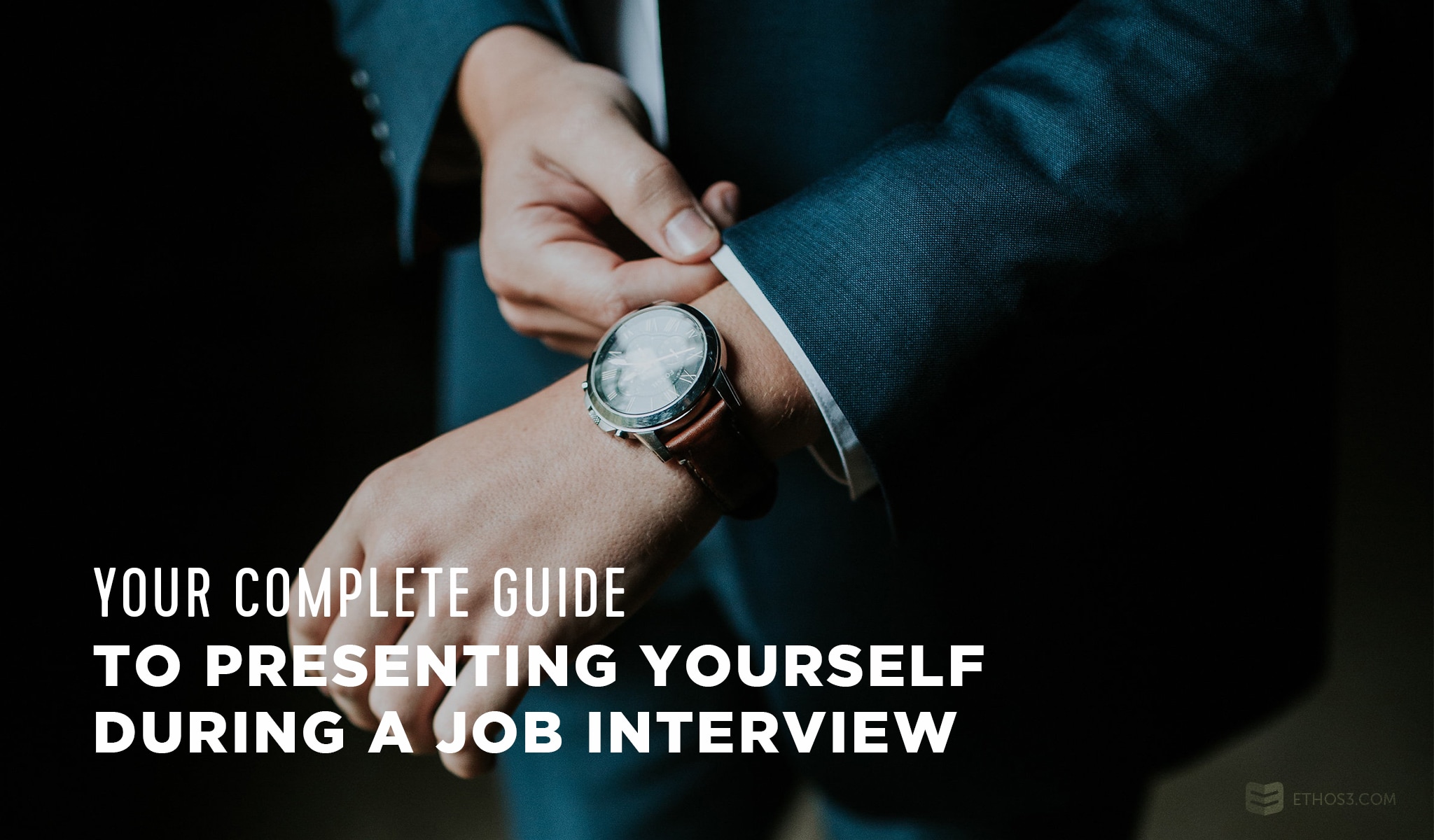I’ve always been envious of my peers who could ace tests without losing an ounce of sleep over late-night study sessions or clinch a job offer with little more than a brief review of the company’s website. While a “wing-it” approach works for a lucky few, I subscribe to a more thorough strategy. I don’t know about you, but I remember when I interviewed for a position with Ethos3. My hands were fidgeting. I relied heavily on notes. My chest felt like it was about to cave in on itself and crush my organs. Your body when presenting yourself during an interview looks a lot like the water bottle experiment many of us conducted in elementary school classrooms. Remember the one where you taped to water bottles – one filled halfway with water and the other empty – together and then gave it a whirl and sat the contraption back on the table? The water spun ferociously inside, while the bottles remained still. The key to calming the storm inside lies in targeted preparation and conscientious follow-through.

It’s All in the Preparation
The employers of today are searching beyond your college degree and even the profile status of your internships and previous work experience. Management in the modern-day workplace craves actions and input over words and niceties. Forbes contributor, Caroline Beaton highlighted 4 characteristics of successful interviewees in 2017 and a National Association of Colleges and Employers survey supported her projections. To reveal your potential to an employer, demonstrate that you are…
Attentive
Curious
Flexible
Humble
When preparing for a job interview, make a list of your most notable achievements and your most challenging obstacles. Of course, right? Isn’t that what every candidate in the history of candidates has done? Yes, but let’s walk an extra step. Think about your achievements and challenges in terms of actions. What did you do? How did you act? In what ways did you respond to particular events or situations? Include activity that conveys your attentiveness, curiosity, flexibility, and humility.
For example, if an interviewer inquired about a challenge I faced in the workplace and how I dealt with that challenge, I would talk about how I solved a problem by filling a gap in a company’s marketing department. I was interested in learning more about email marketing, so I volunteered to take ownership over it. In the months since then, I have enrolled in online courses and attended relevant Meetup groups to enhance my marketing skills. In a single example, I would have shown the interviewer that I can put my head down and focus on a project; that I am curious about the layers of not only my position, but of the company in general; that I am capable of adapting to changing needs; and that I am willing to accept the limits of my knowledge and seek out opportunities to grow in certain areas.
The first step to presenting yourself in a positive way at your next job interview is to outline significant parts of your work history and align the characteristics you displayed with the characteristics valued by today’s employers.
Show Up for the Game
Once you’ve done the leg work, you are ready to hook, line, and sinker. Use your presentation skills to come across as the confident, capable, and cunning professional that you are.
1. Restate the question before answering it.
Give yourself time to sort out your answer and trigger your memory through the repetition of keywords. If you’ve prepared for possible questions, your brain will be able to sift through information and pull out the pieces of data that are most relevant to a question.
2. Structure your responses like a story.
The answers you craft should have a beginning, middle, and end. They should outline the task or objective (the beginning). Then, they should provide insight into a defined list of action items you completed (the middle) to achieve a desired result (end).
3. Provide any kind of data you have on hand.
With the major advances in cloud-based technologies, mobile applications, and more, nearly everybody has the ability to track results and measure the success of almost any type of effort. Whatever data you can accrue – whether it’s the percentage increase in email clicks you earned by revamping a drip campaign or the average amount of time it takes you to fill a pothole – use it to your advantage. Show that performance matters to you.
4. Understand the power of “thank you.”
Never leave a job interview without thanking the interviewer for their time and for considering you in their candidate search. Always, always, always follow-up with an email or some kind of thoughtful correspondence.
I’ll let you in on one more job interview presentation secret: look for areas of improvement or growth in your research and develop a solution or two before your meeting. Share your thoughts at an appropriate time during the interview. Even if the company or organization has already attempted your idea, the extra effort exerted to entertain the idea will put you leaps and bounds ahead of the competition.
Want more tips for presenting yourself? Check out some of our timeless classics:
How to Win the Job Interview Presentation
Interview Tips For All Future Employees
